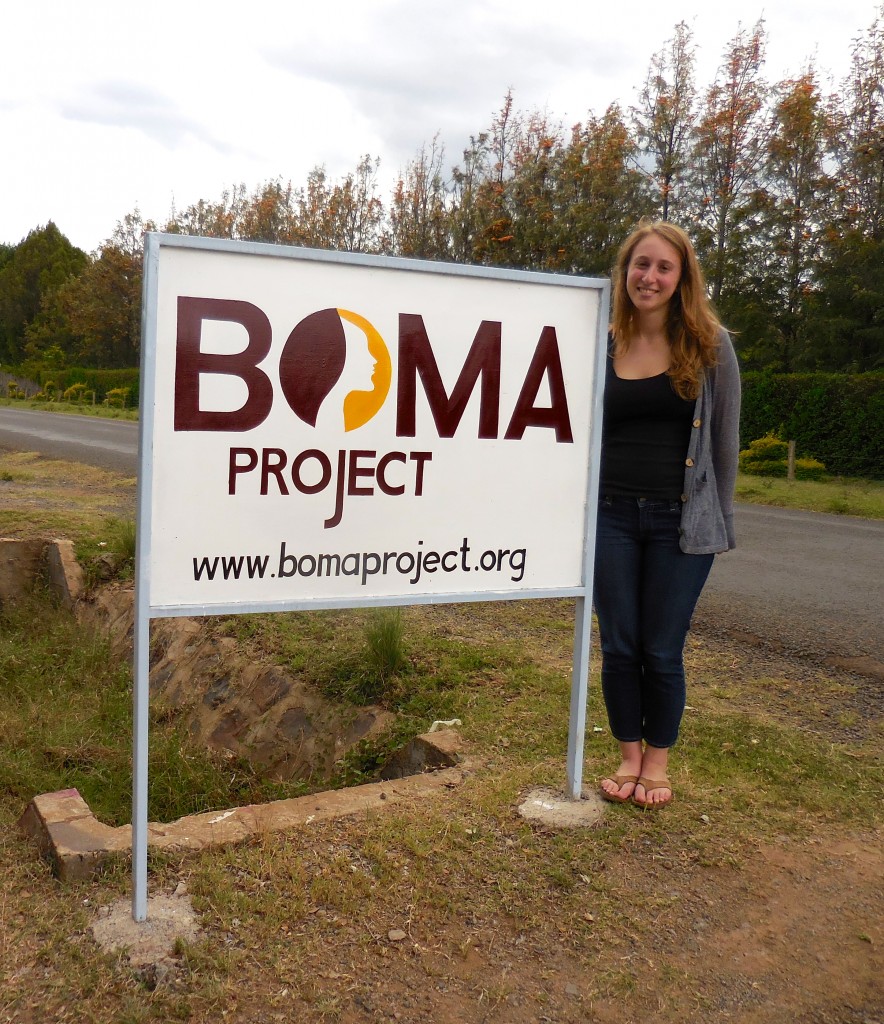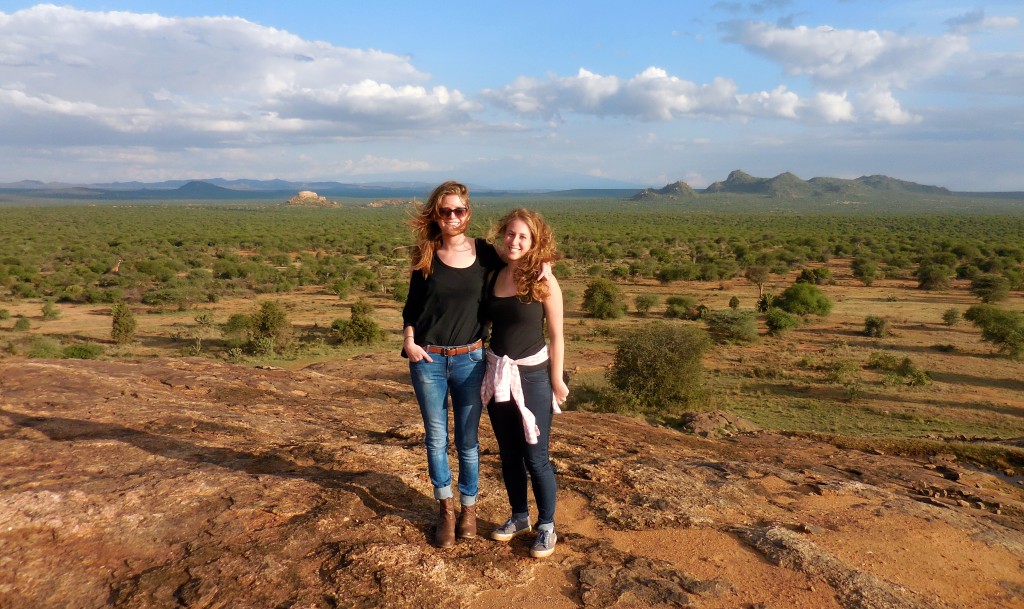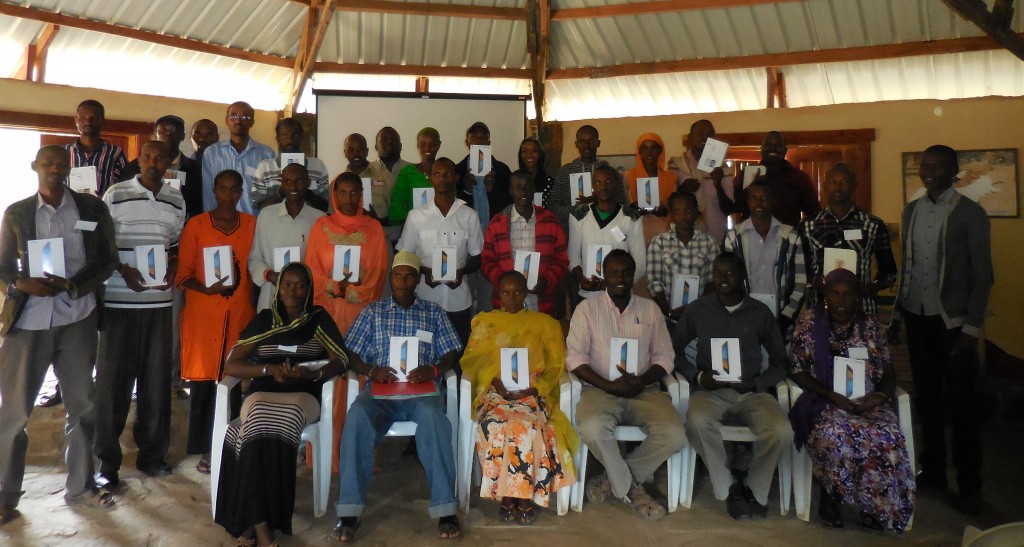
Princeton in Africa (PiAf) offers yearlong fellowships in Africa to recent graduates who are committed to Africa’s advancement. Each year, Fellows have the opportunity to work with one of 20-30 organizations in approximately 15 African countries. Fellows have helped improve education and public health, source fresh water and alternative energy, increase family incomes, and provide other services. The program is open to graduating seniors and young alumni from any accredited college or university in the U.S.
To learn more about this extraordinary opportunity, we interviewed Eva Zenilman, a current PiAf fellow in Kenya, who is currently working with The Boma Project, a U.S-Kenyan non-profit that aims to alleviate poverty and build resiliency in the drylands of Africa.
1. What inspired you to apply for the Princeton in Africa Fellowship?
I worked in Kenya the summer between my junior and senior year of college on a public health study in the Western region, and ten weeks just didn’t feel like enough time. Once I returned to the U.S. in August, I immediately started Googling for fellowships and opportunities. Less than a year later, I was able to return on the Princeton in Africa fellowship.
I now realize that the experience had been crucial in rekindling my spirit of service. After high school, I spent a year volunteering with the AmeriCorps program City Year in Brooklyn. I enjoyed supporting the students in all sorts of ways and adjusting to an unfamiliar environment, and I also found it incredibly empowering to go to work every day with people who were all committed to fostering change.
But then I went to college, and school is so full of tension and pressure that I somewhat lost track of my greater ambition to explore and affect structural change. My work and time in Kenya brought that ambition back in full force, and I knew that Princeton in Africa was the right fit because it embodies those values as an organization and encourages its fellows to do the same.

2. What have been some of the most eye-opening moments during your fellowship?
I haven’t been on my fellowship for that long, but in my first month here I was able to spend about 10 days in rural Northern Kenya. The BOMA Project works with pastoral communities in Northern Kenya’s dry, arid lands, and supports women living in extreme poverty in launching micro-enterprises and savings groups.
This trip was to prepare for and run the annual training the organization holds for the field staff, but it gave me a ground-level view of the world that The BOMA Project operates in. The vastness of Northern Kenya (we drove for ten hours and only saw one other car) was breathtaking and mind-boggling. Climate change has toughened the conditions in Northern Kenya, which means that building resilient and sustainable livelihoods among women and households is extremely important. For the first time, I was able to put all that I had learned about our programs into context, see what these livelihoods could look like, and understand the potential effects an increased level of resiliency could have.

3. What tips would you give others applying to the fellowship?
Don’t be deterred from applying for any reason! Two nights before the application was due, I stopped filling it out because I “knew” I wasn’t going to get it. It took a whole day of pep talks from my brother, my mother and my roommates to get me to press send. And here I am.
I’d recommend reading about the organizations where Princeton in Africa fellows are working or have worked, and thinking about which ones intrigue you and why (and be honest). How does the work relate with your academic interests? How does the post align with your previous work experience? If it doesn’t relate to anything you’ve done, then why the change? Do you want to be in a city, or somewhere more rural? Your lifestyle preferences are important! Asking these questions to yourself helps you become aware of what you want and where you want to challenge yourself, and it helps the staff create a fulfilling experience for its fellows.
But really, don’t be scared of applying.
Eva Zenilman is a current Princeton in Africa fellow. She lives in Nanyuki, Kenya and is a Monitoring and Evaluation Associate at The BOMA Project.
© Victoria Johnson 2014, all rights reserved.